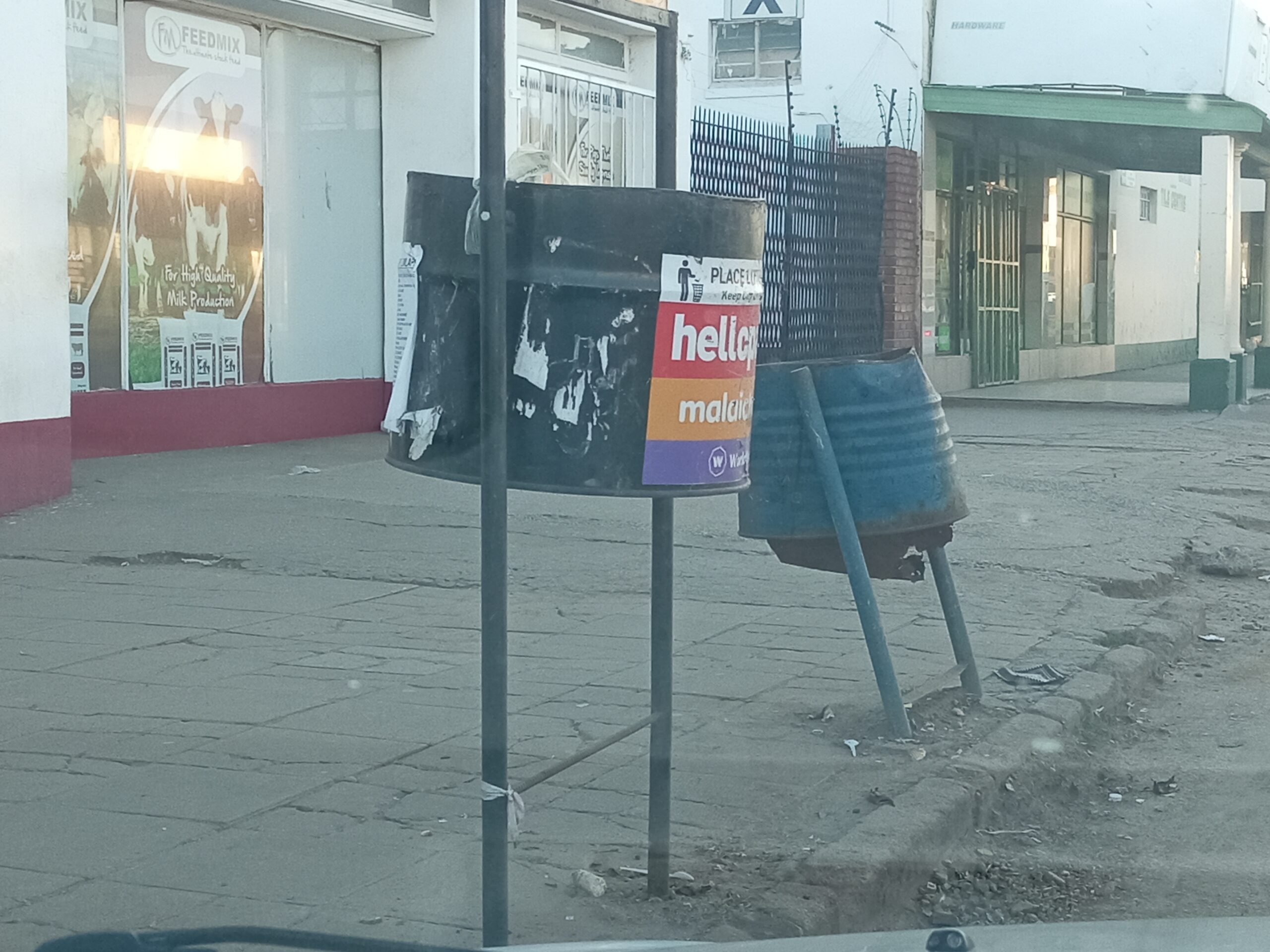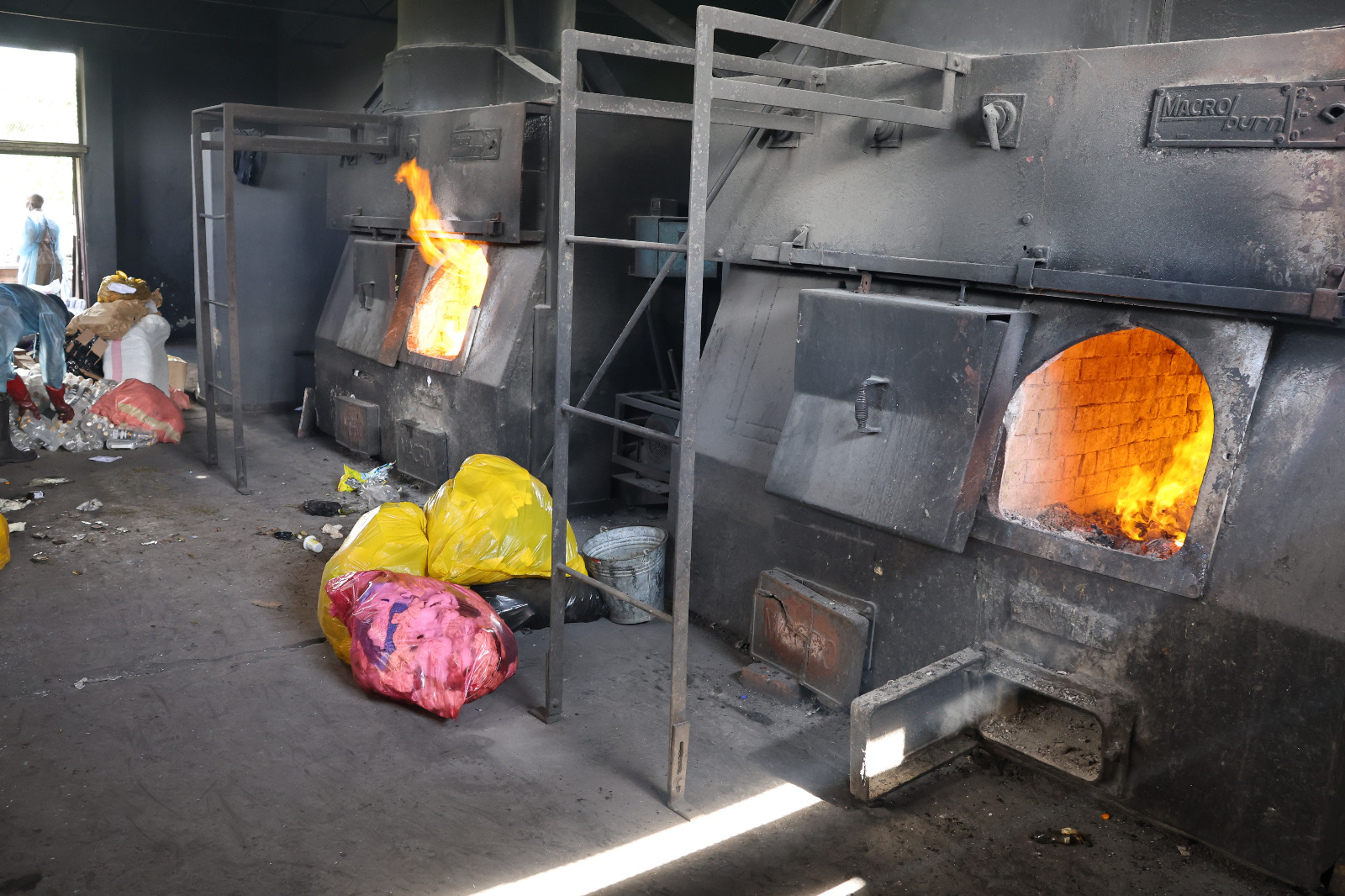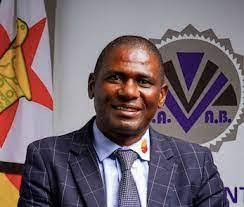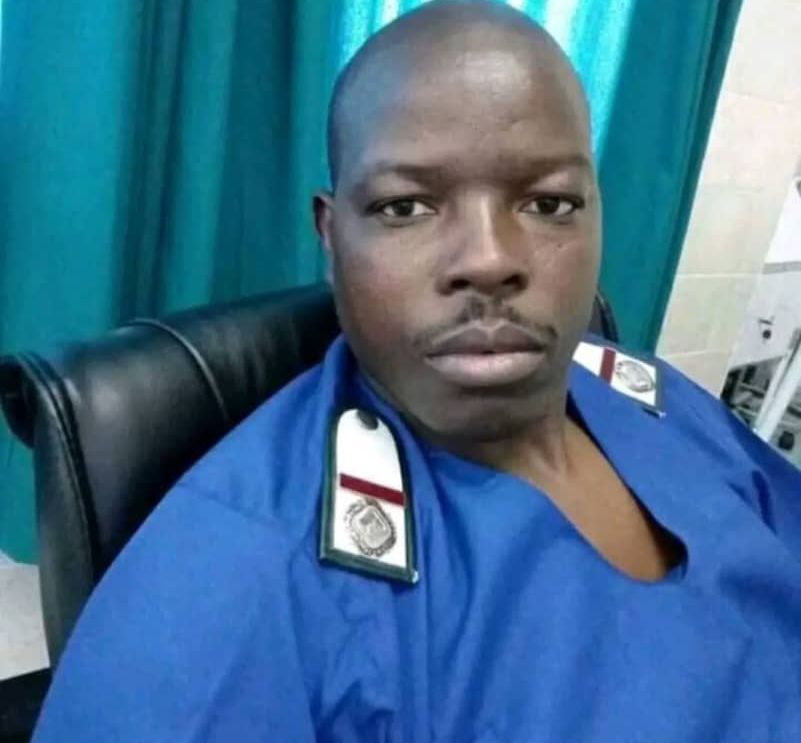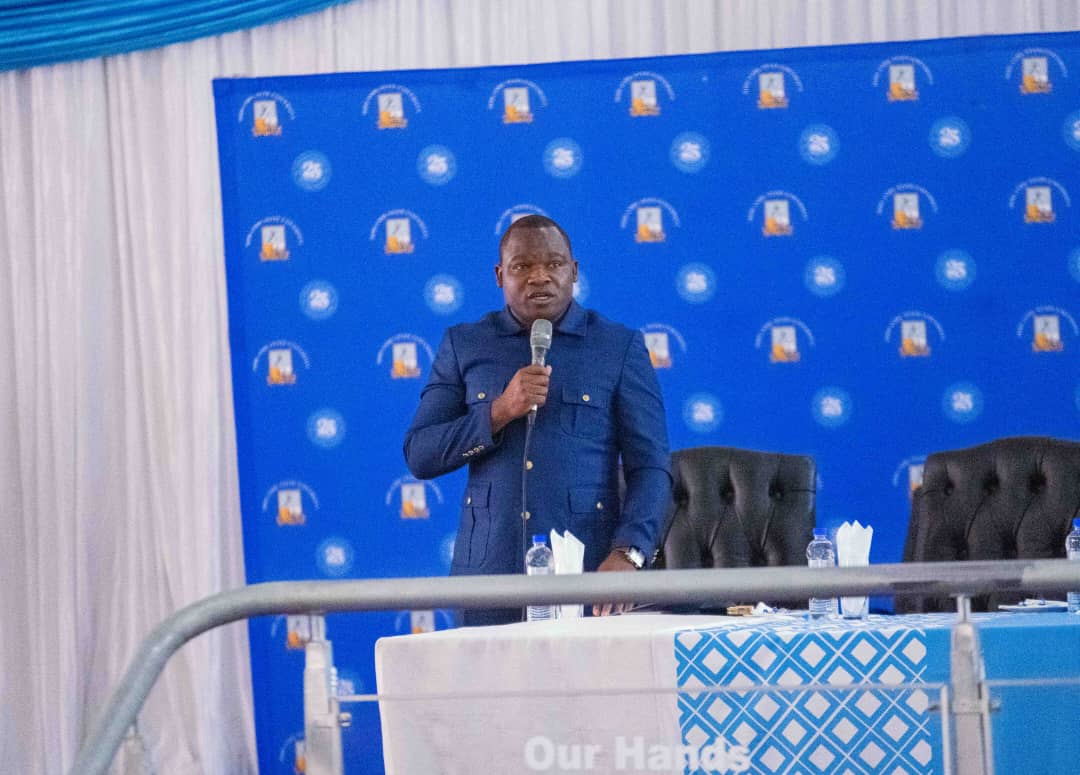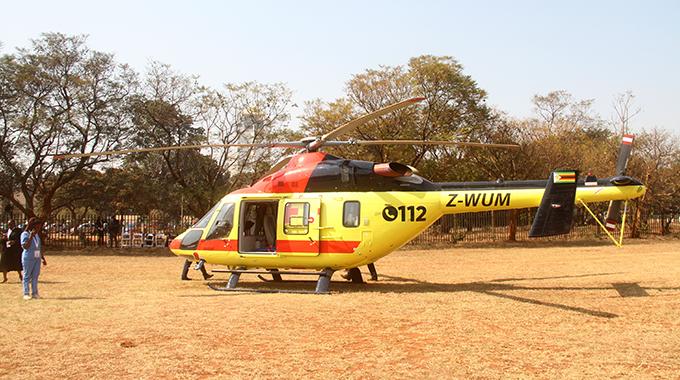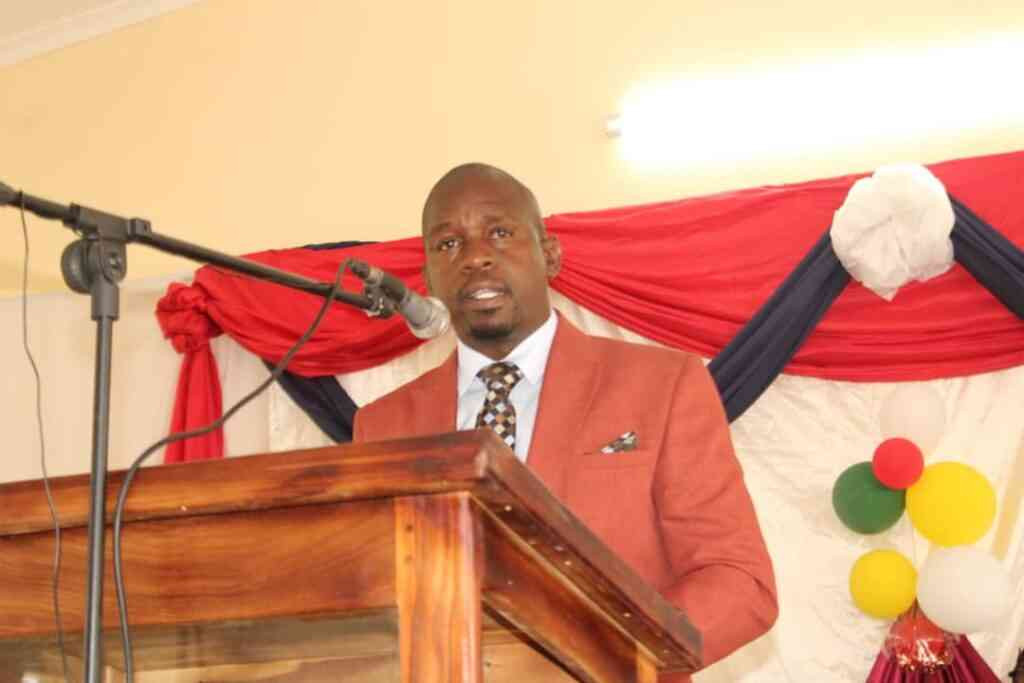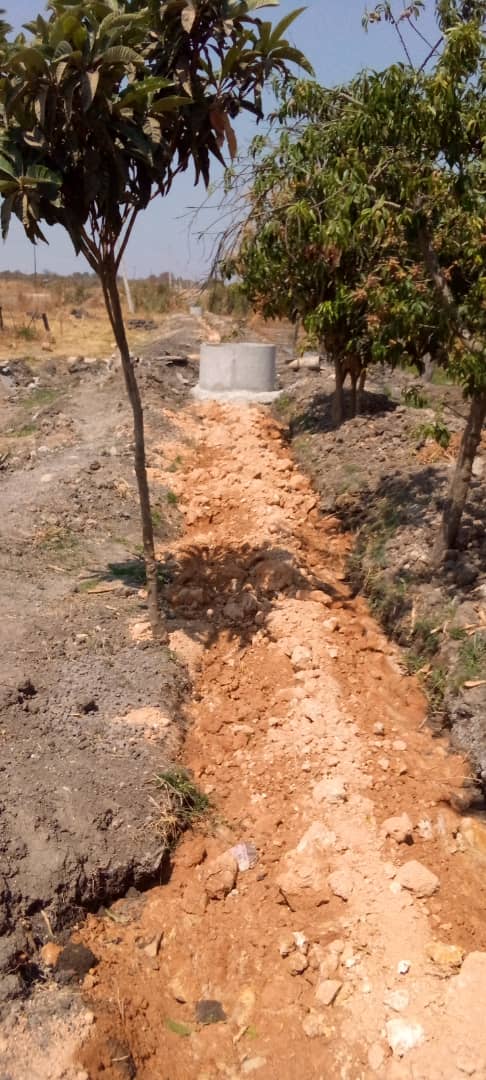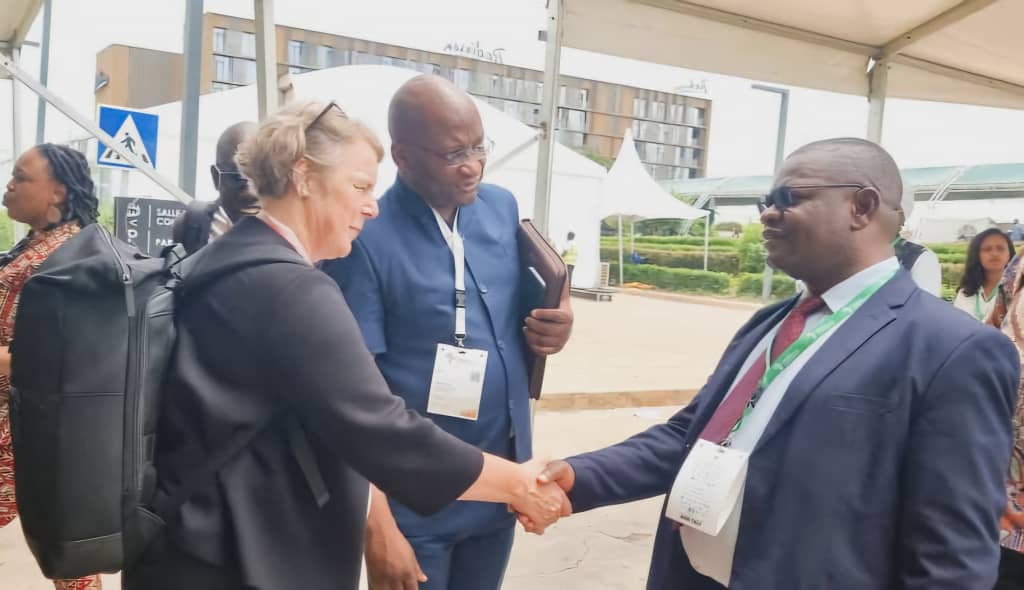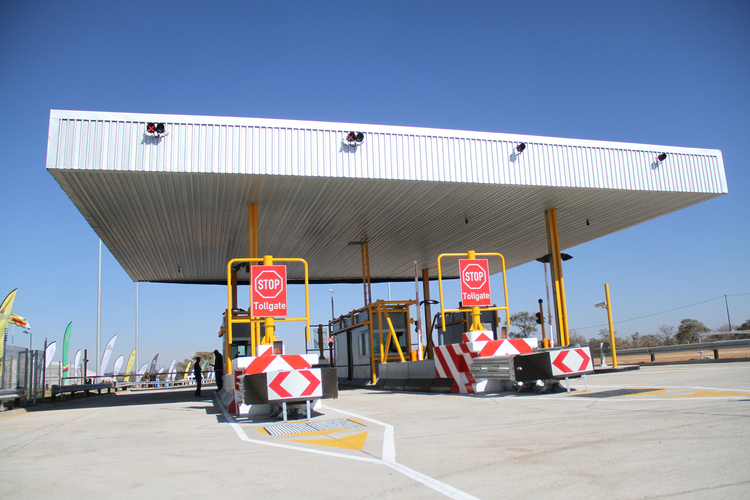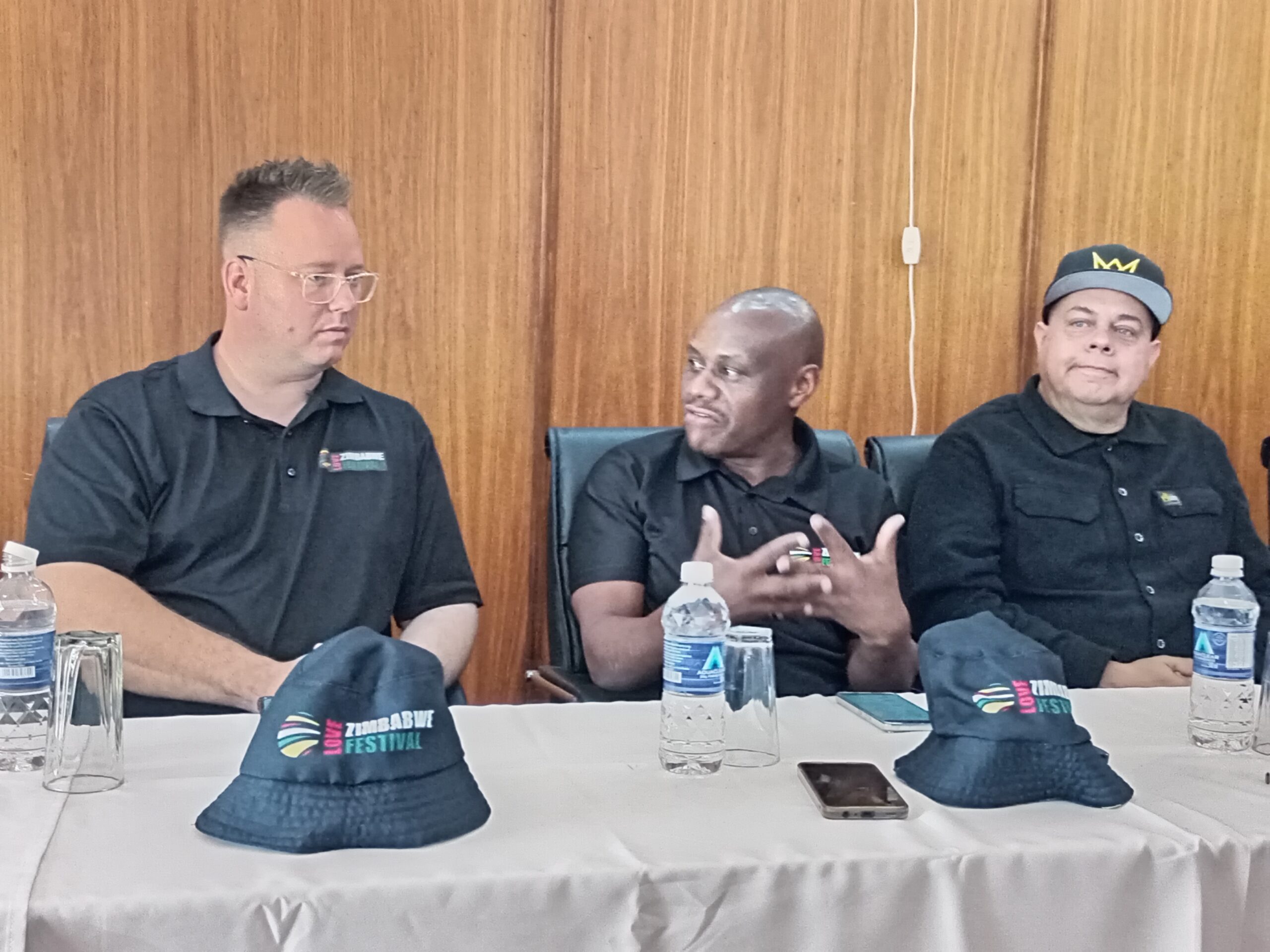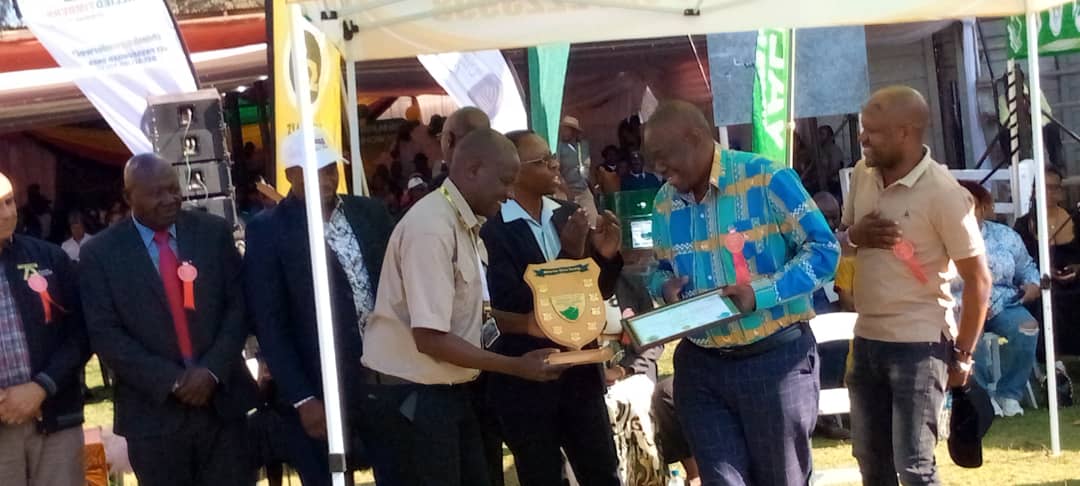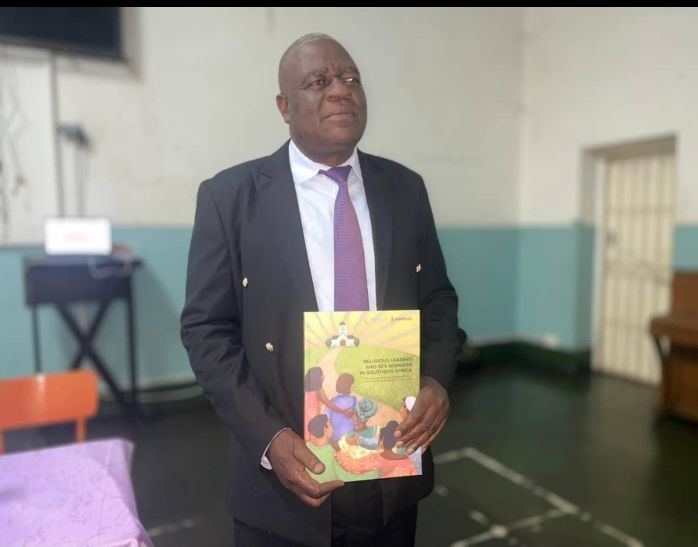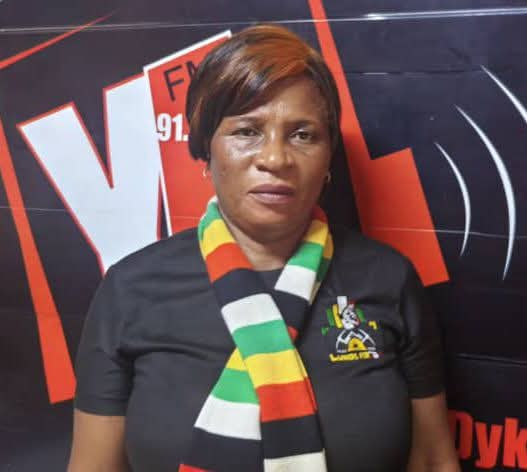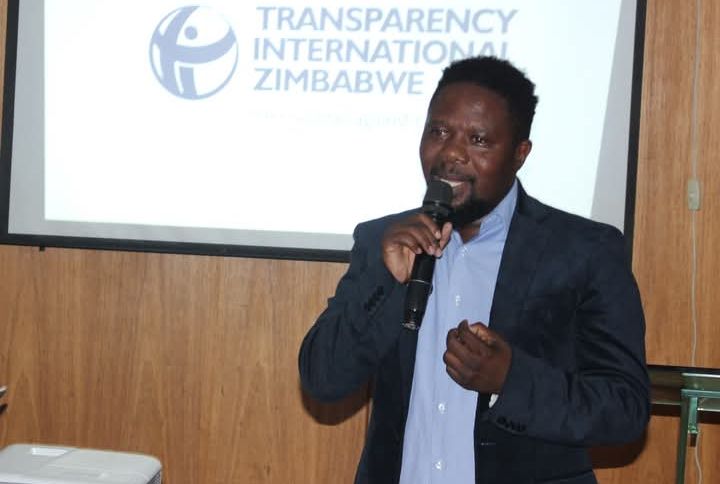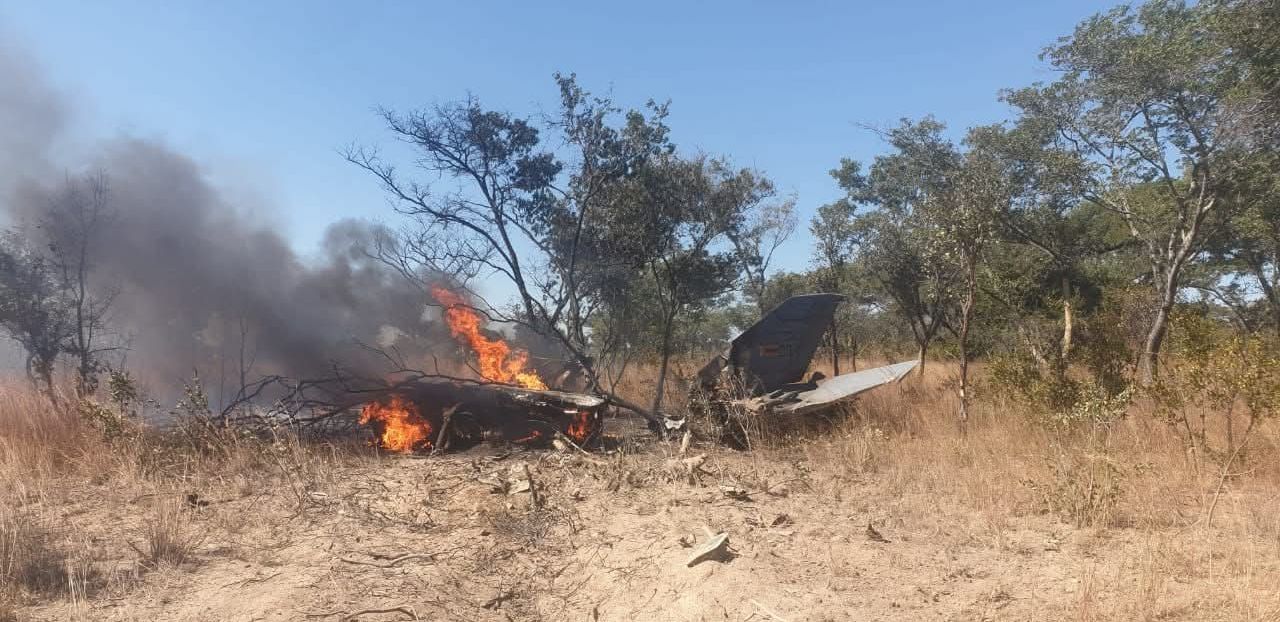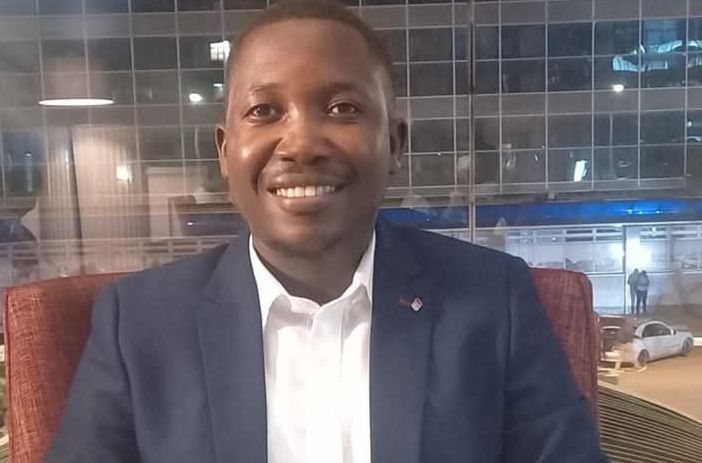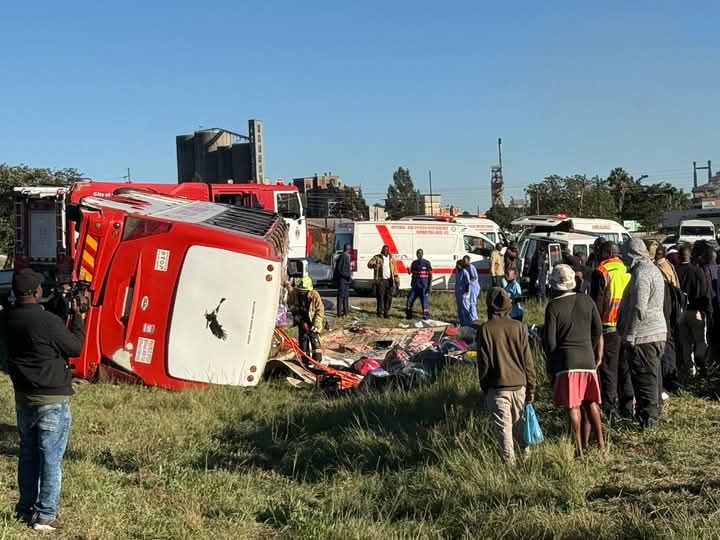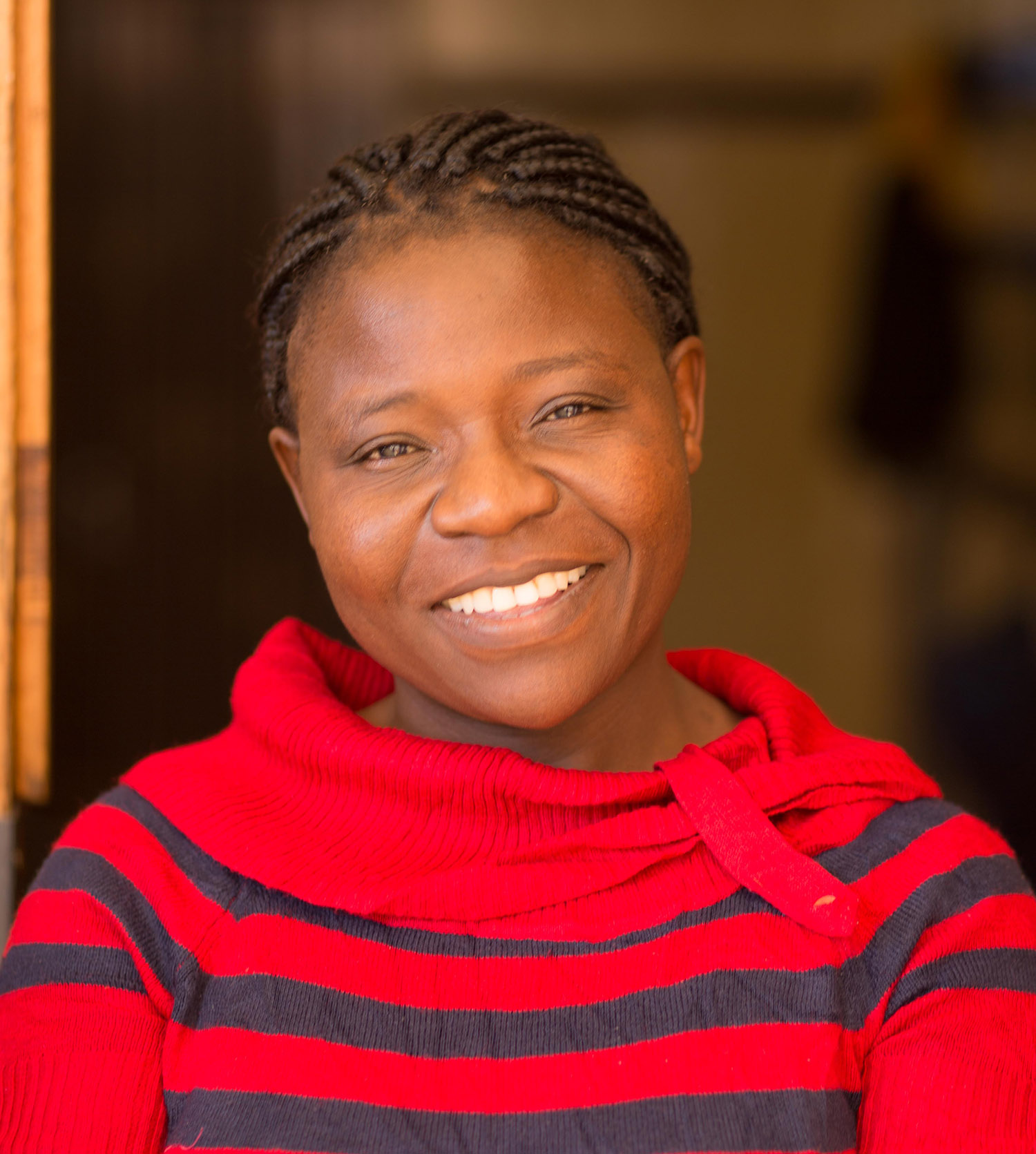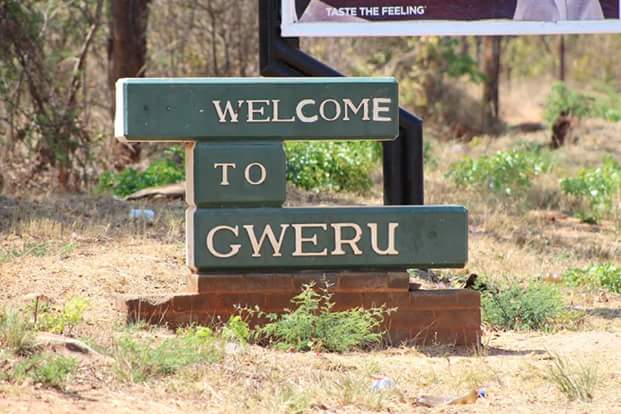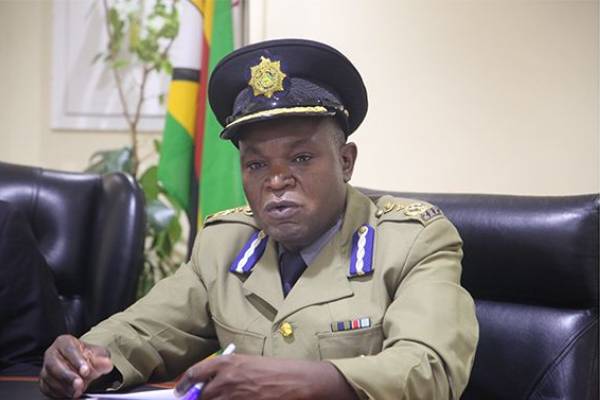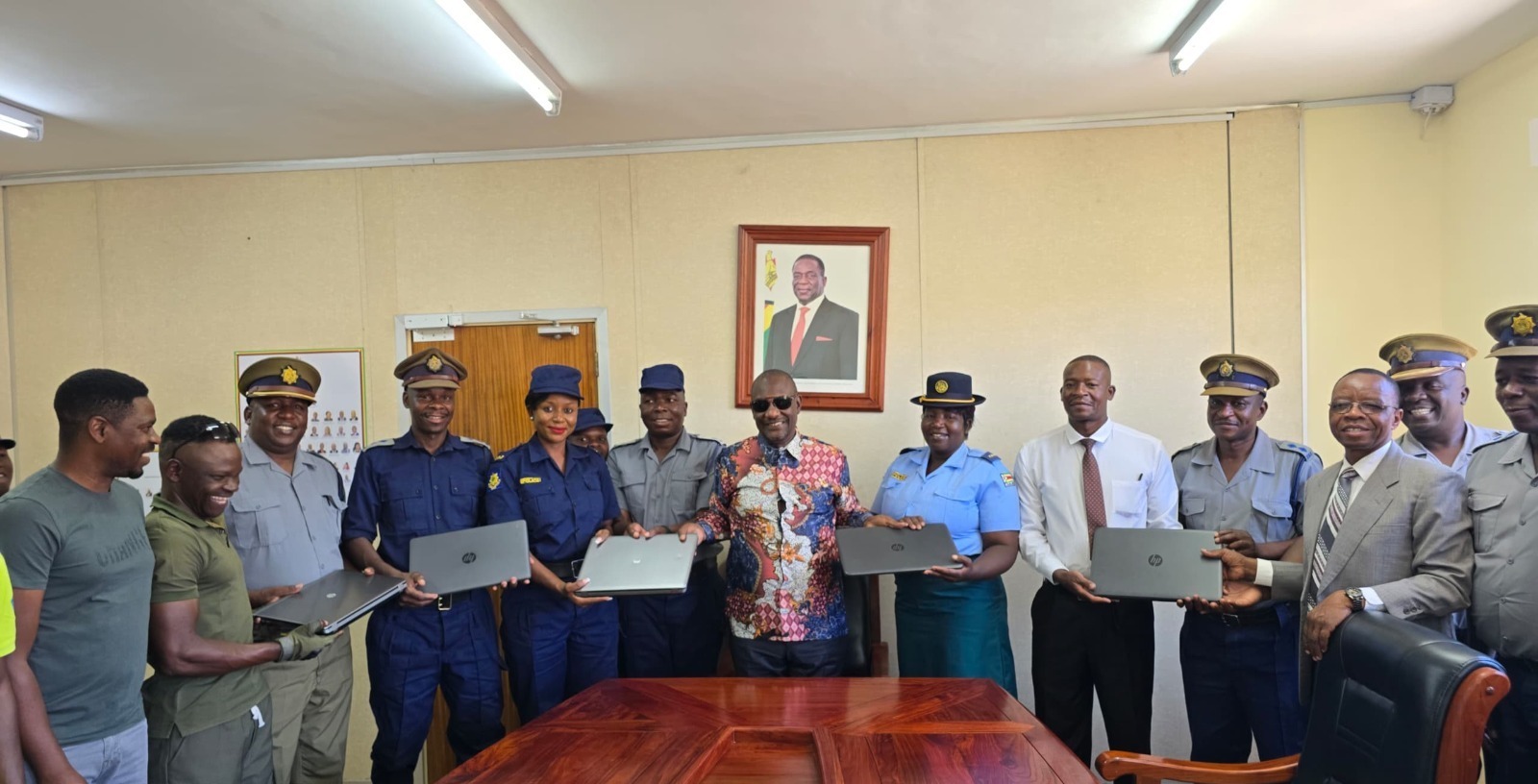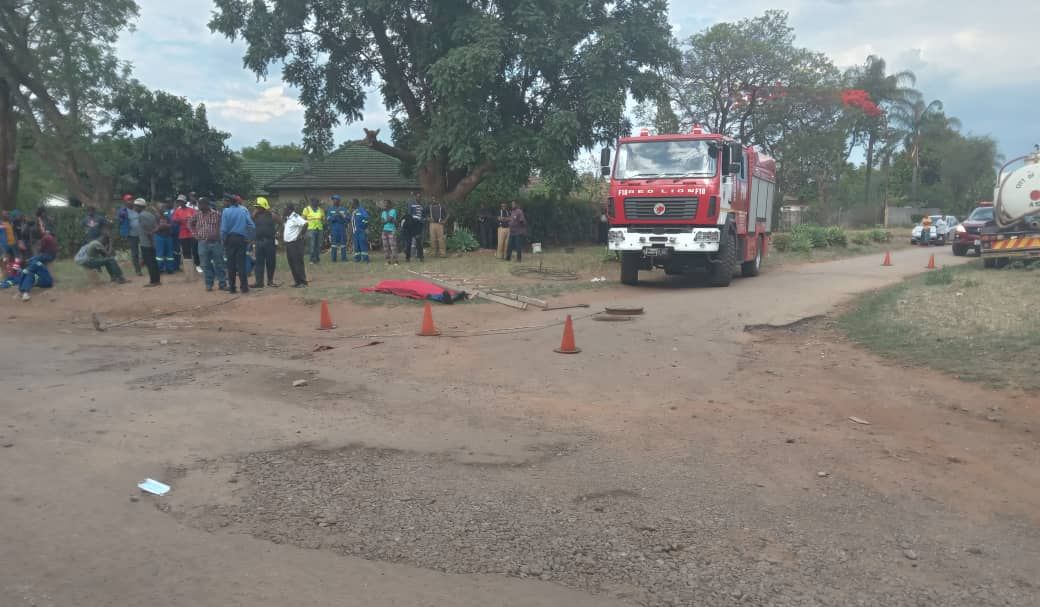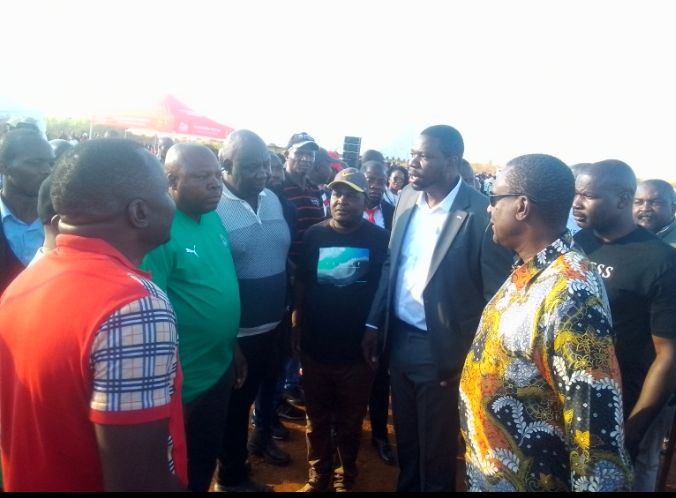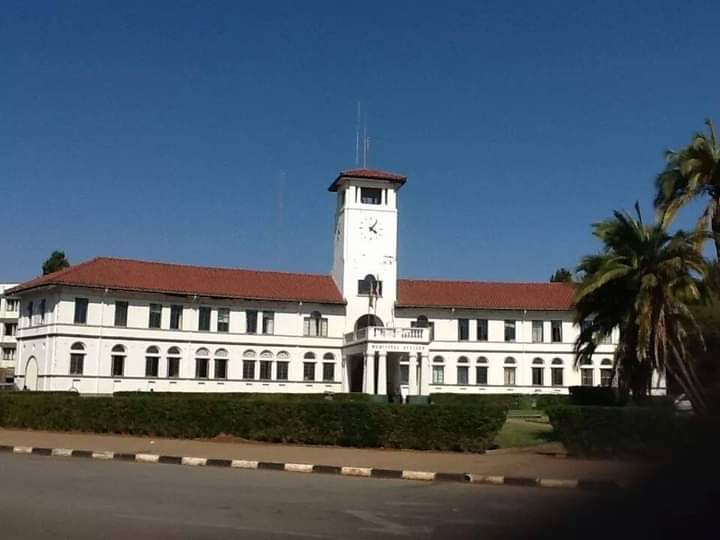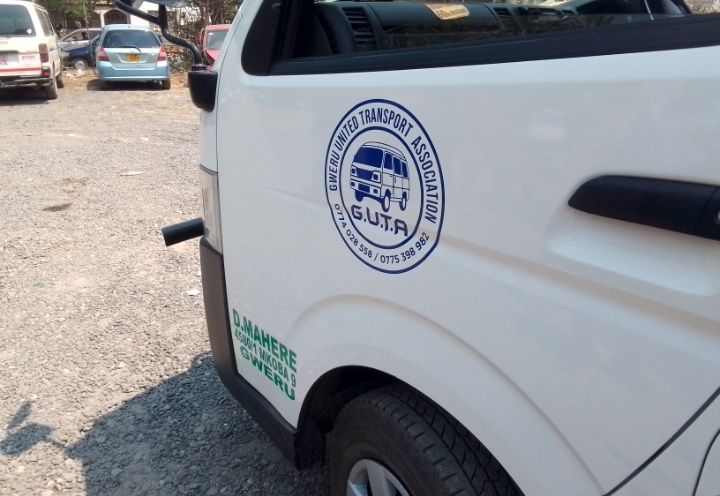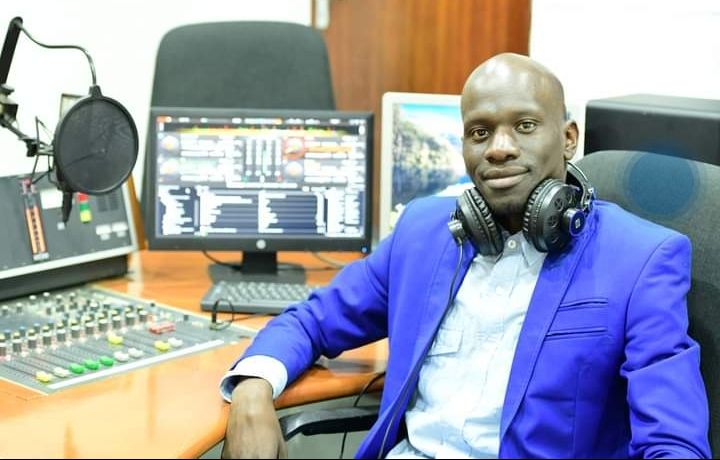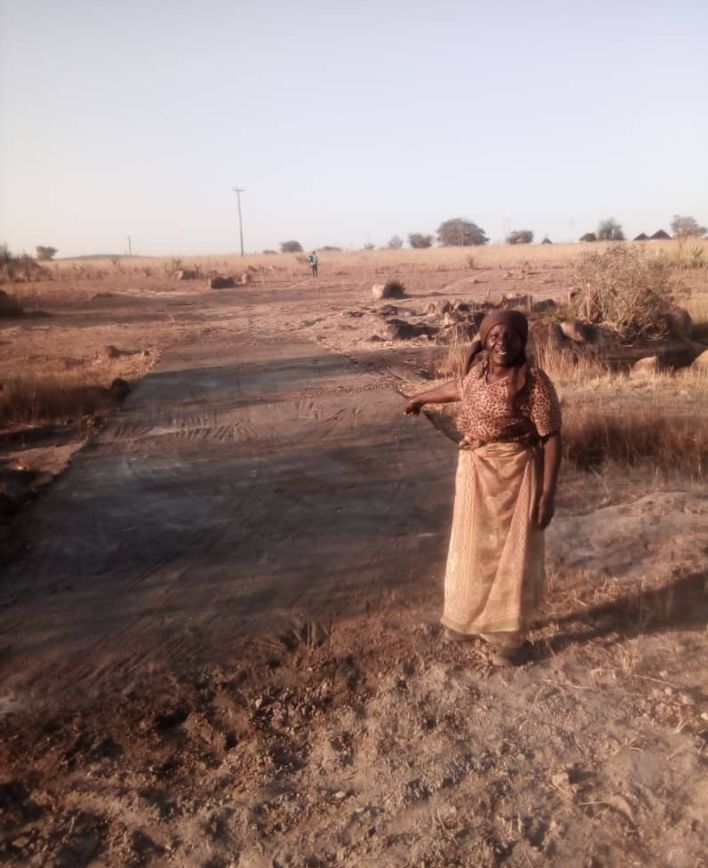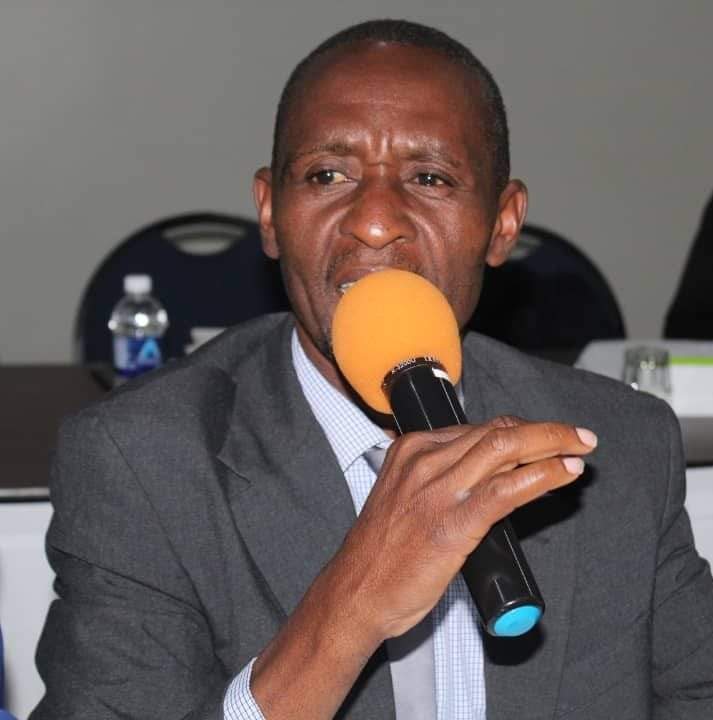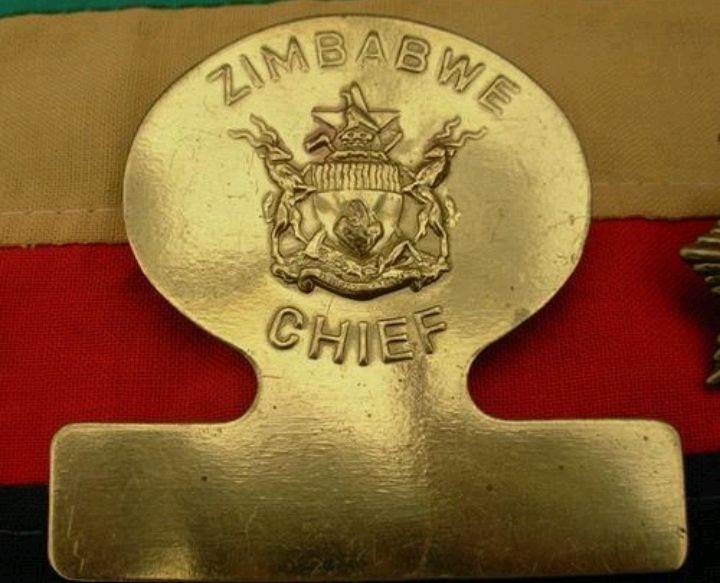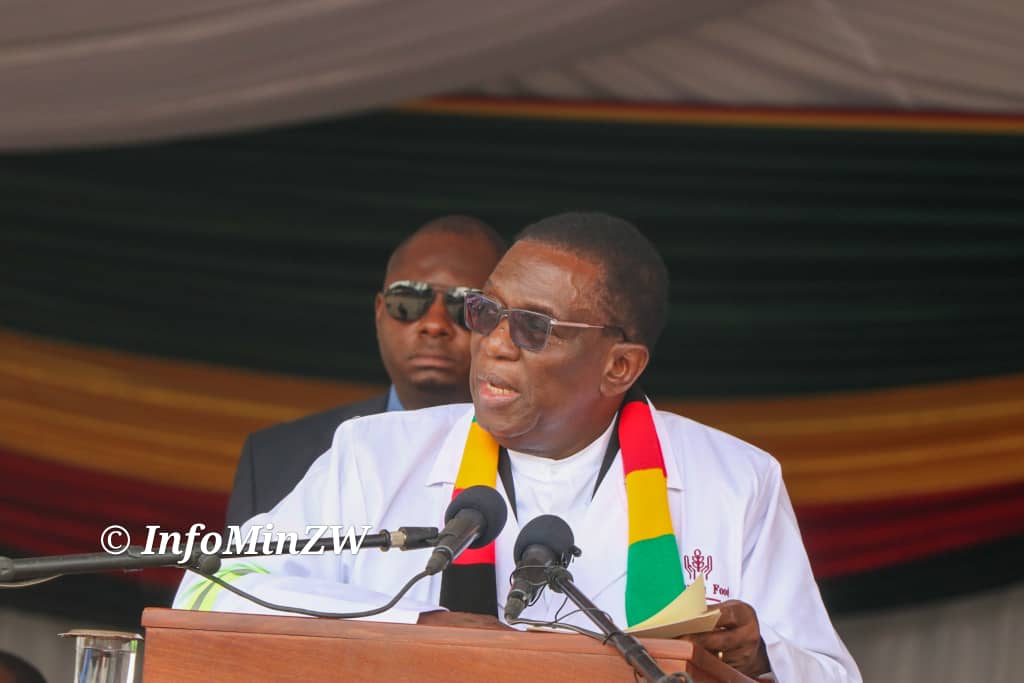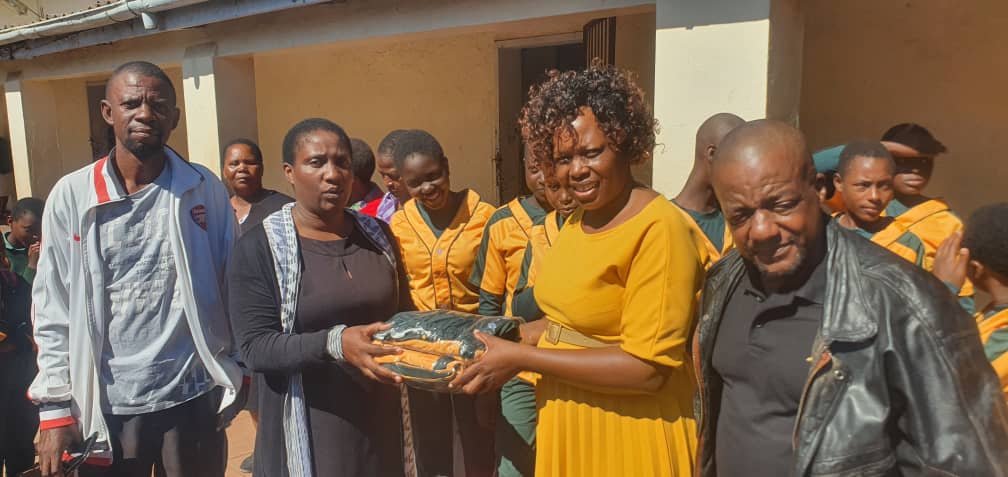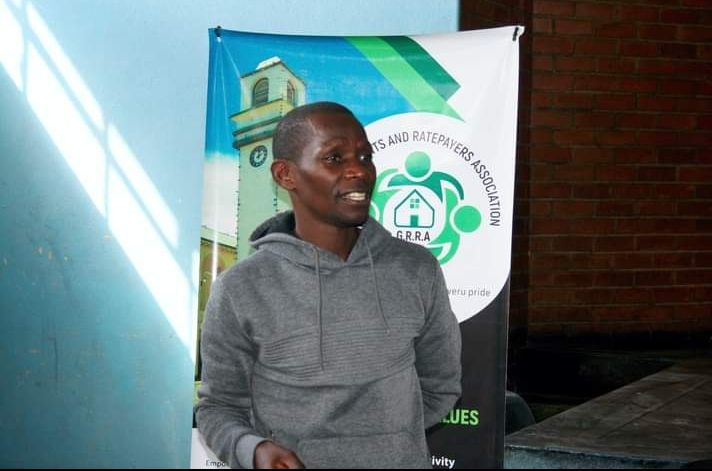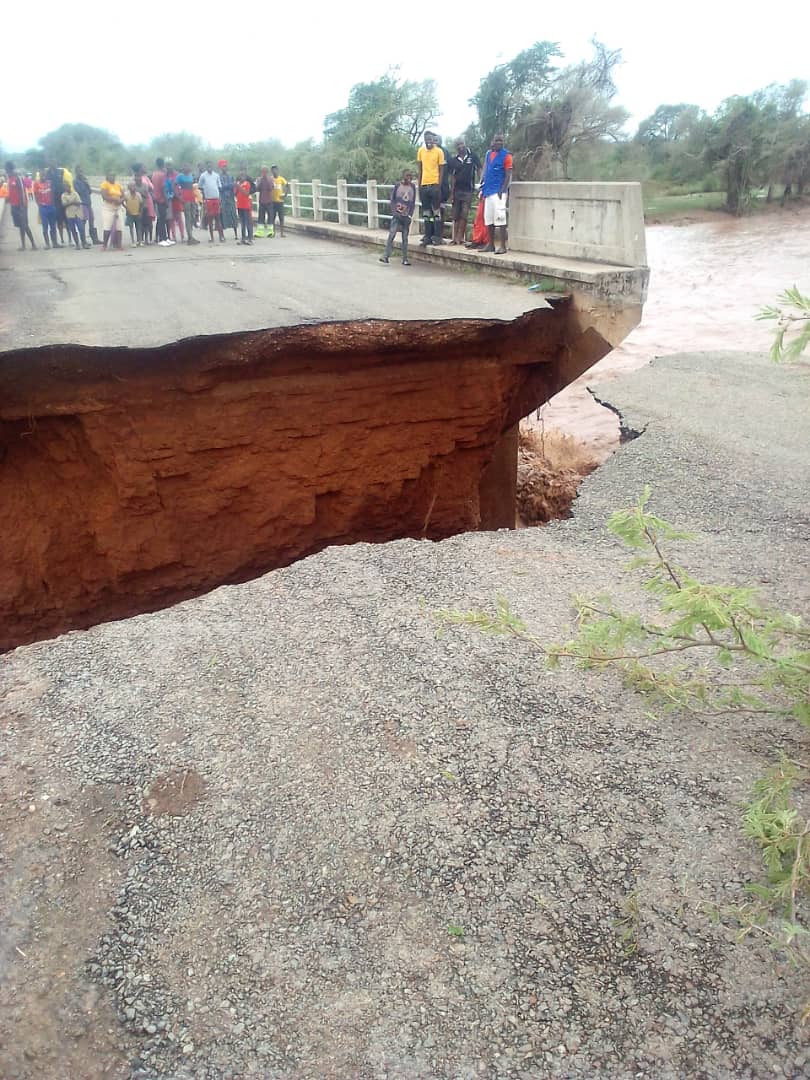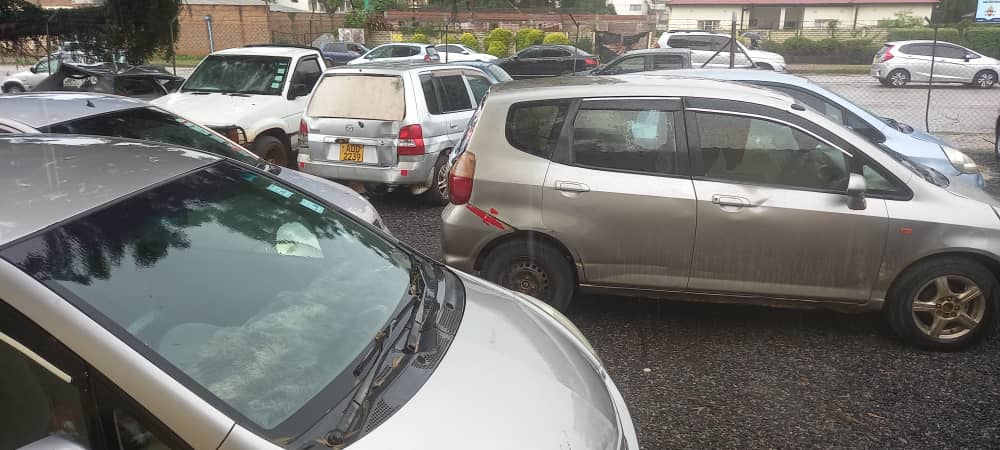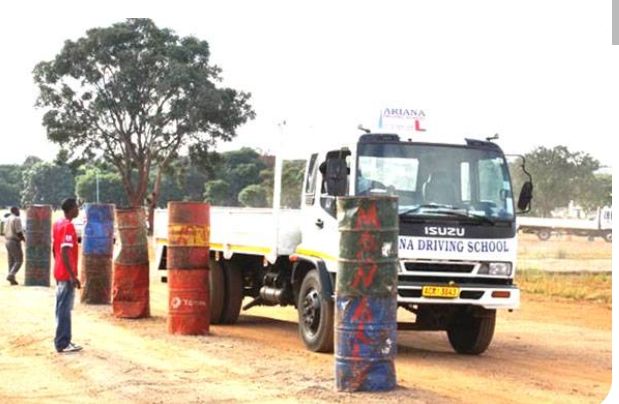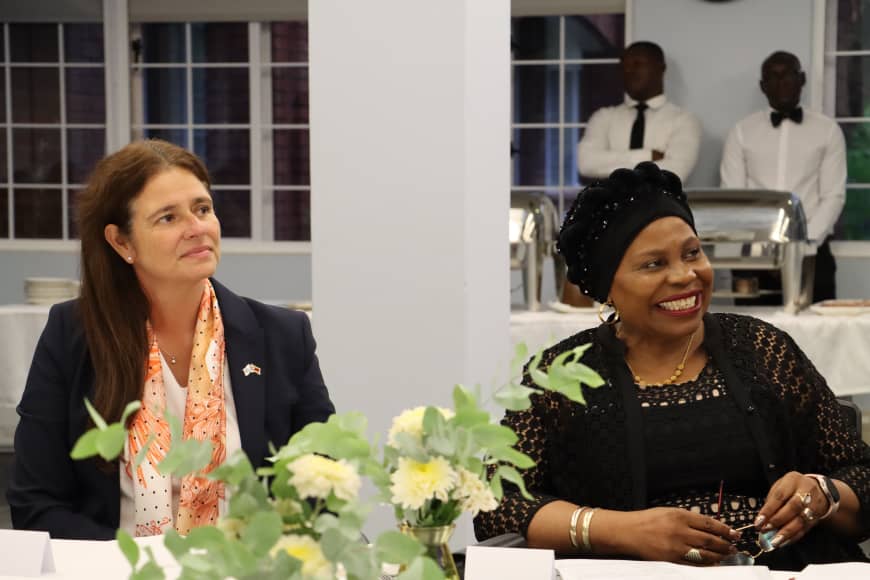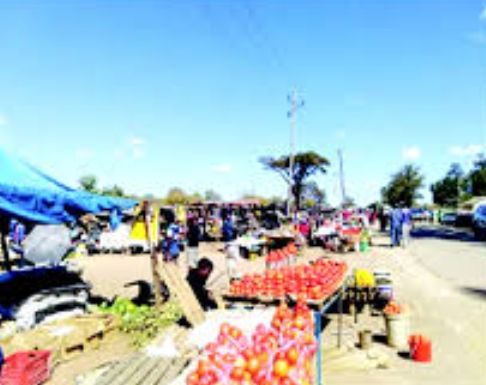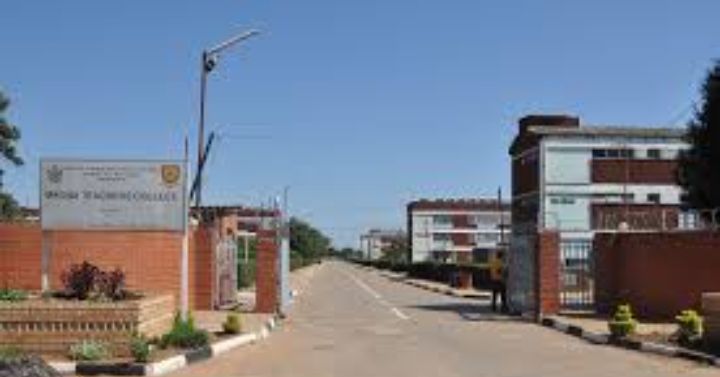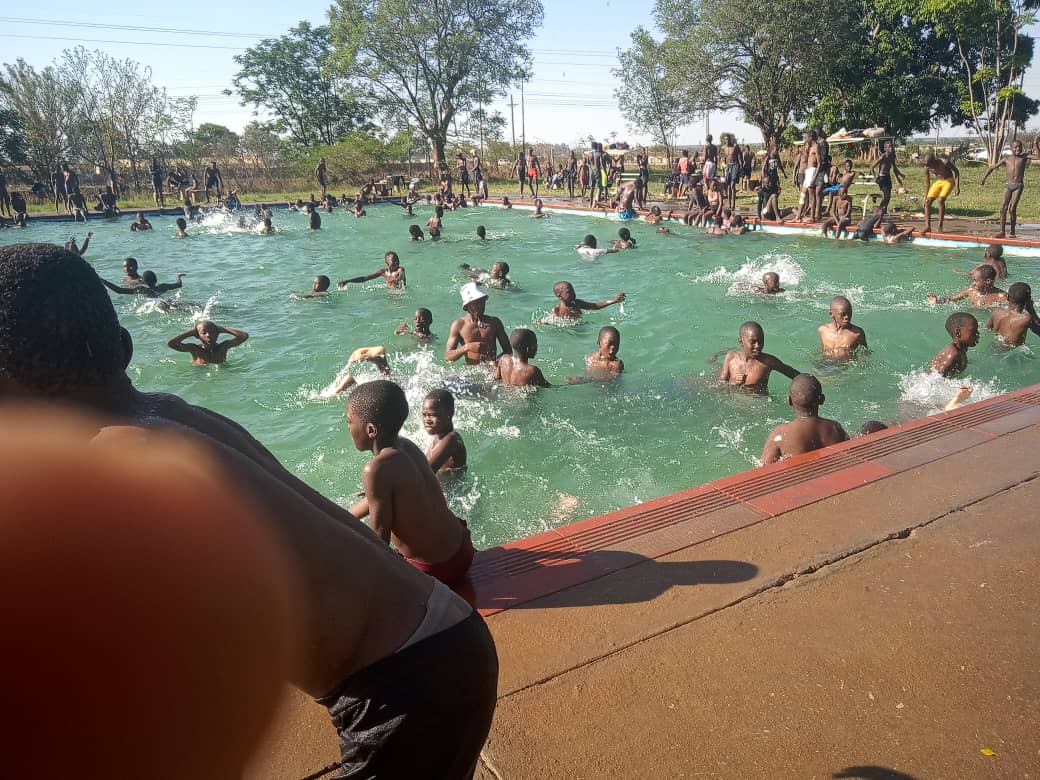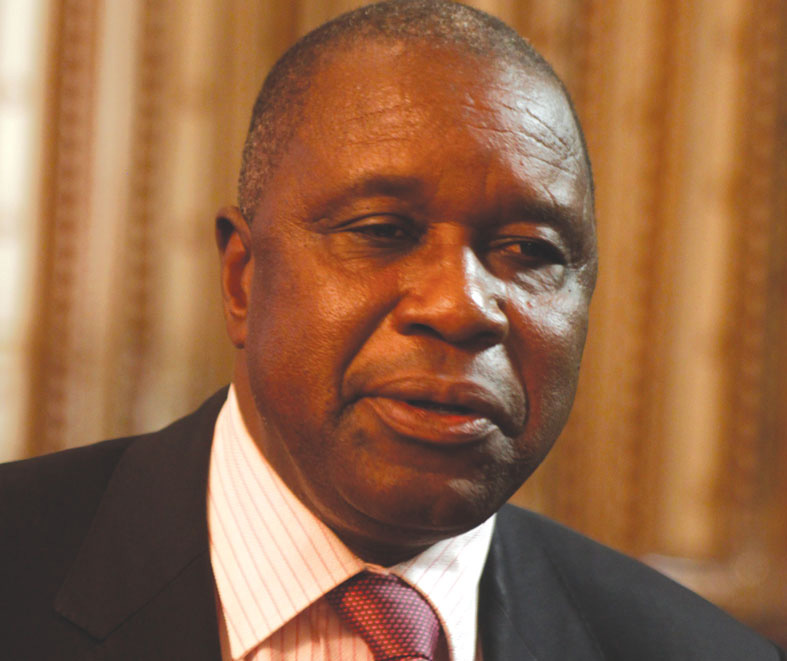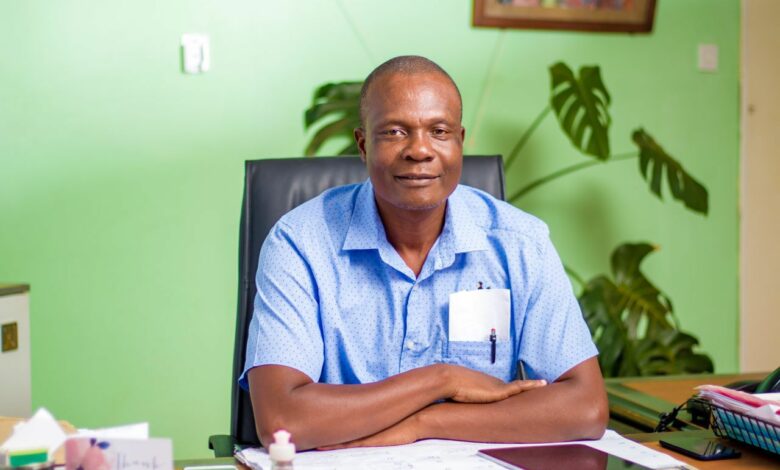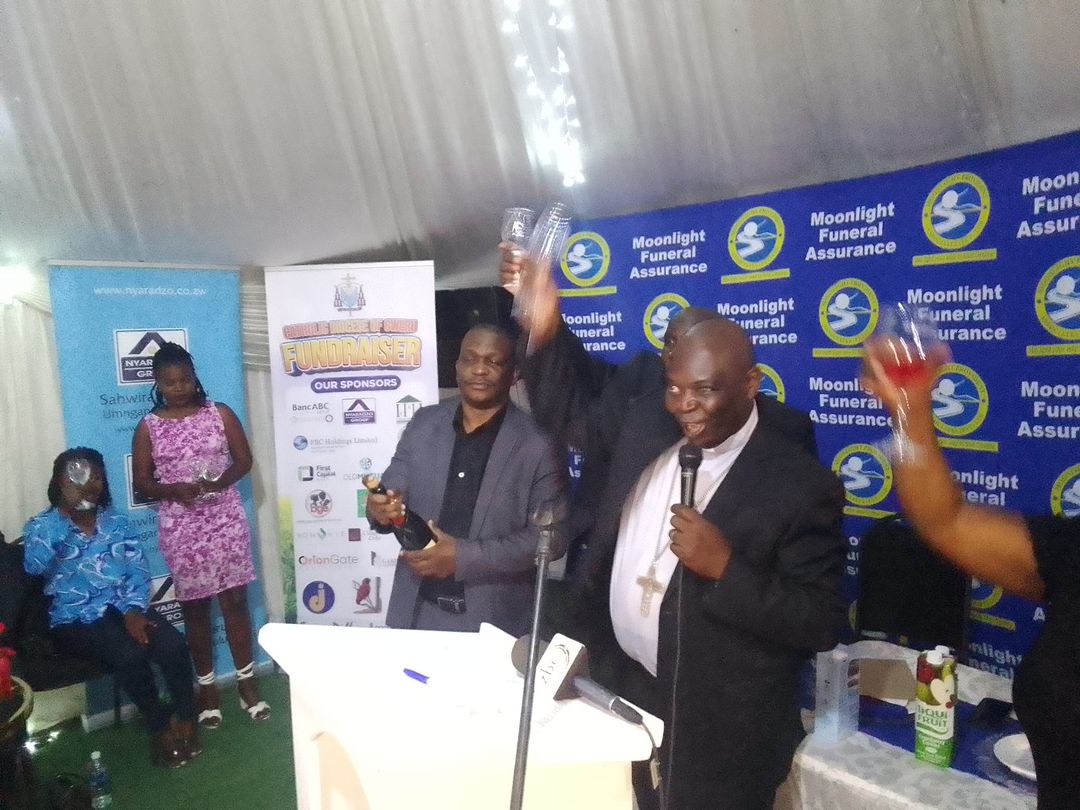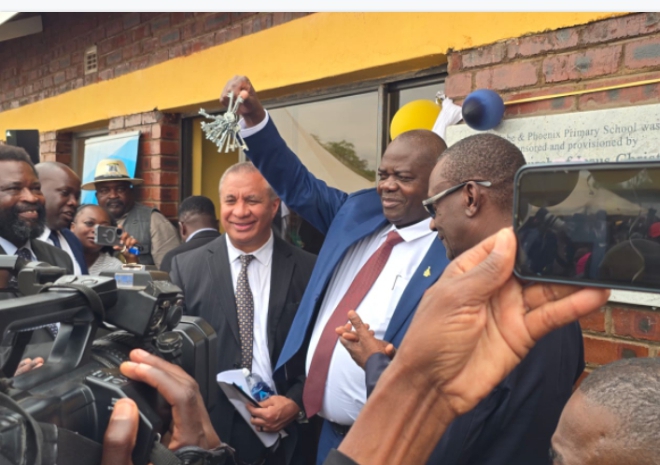
MARTIN MAWAYA
KWEKWE-Globe and Phoenix Primary School was on Thursday afternoon commissioned two years after its collapse due to illegal mining activities leaving thousands of learners displaced.
The new US$600 000 complex was funded and built by The Church of Jesus Christ of Latter-day Saints.
It was officially opened by the Minister of Primary and Secondary Education, Professor Torerayi Moyo.
The minister hailed the project as a model of effective public-private partnership and a “powerful testimony of community-driven development.”
The commissioning comes more than two years after the old Globe and Phoenix Primary School in Kwekwe was shut down in March 2023.
The incident, which made national headlines, left 1 348 pupils and 45 teachers stranded.
The Civil Protection Unit (CPU) swiftly decommissioned the school, relocating learners to makeshift tents at Russell Primary School.
However, the temporary learning environment proved extremely difficult.
“There were no proper toilets, furniture or sporting facilities. The tents were constantly damaged by wind and rain,”Prof Moyo recalled during his address.
“Dust and noise from surrounding activities made concentration impossible.”
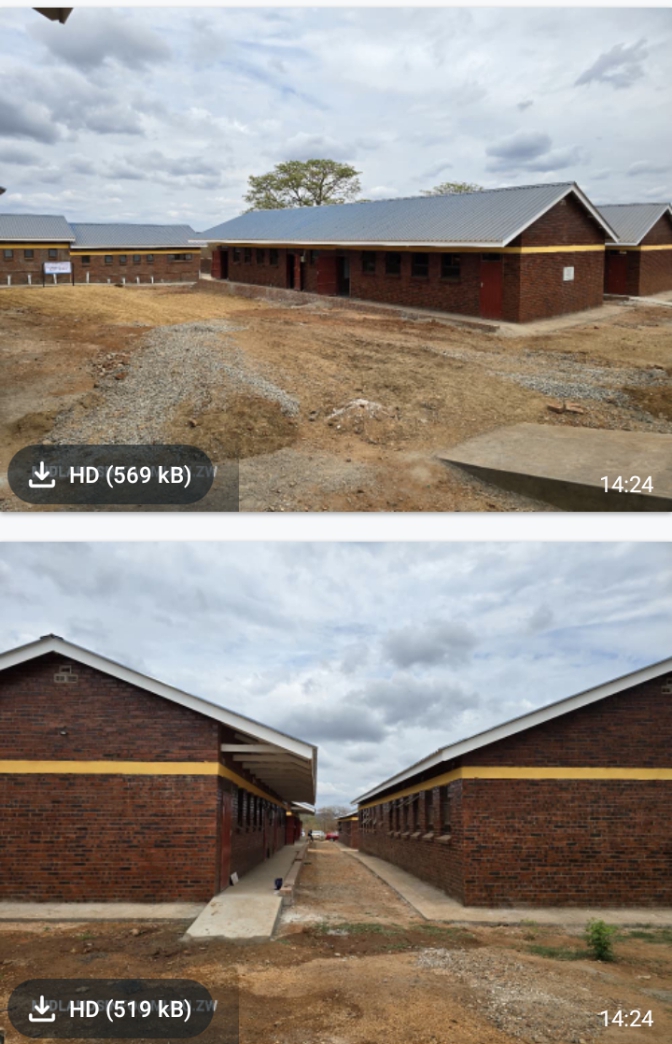
He said the learning conditions led to a significant drop in enrolment as frustrated parents withdrew their children, fearing for their safety and academic progress.
Recognising the urgent need for a lasting solution, The Church of Jesus Christ of Latter-day Saints stepped in, financing the construction of seven classroom blocks, an administration block, and modern ablution facilities.
The new school has also been equipped with a 10kVA solar power system, a solarised borehole, 600 desks and chairs, and 14 staff tables.
A new beginning
The rebuilt institution, that now accommodates 785 learners, represents not just a physical reconstruction but also a rebirth of hope for the Kwekwe community, long affected by the environmental and social toll of unregulated mining.
“This partnership is a shining example of how churches, government, and communities can work together to build the Zimbabwe we all want,” Moyo said.
Midlands Provincial Affairs and Devolution Minister Owen Ncube, said the tragedy that befell Globe and Phoenix School had exposed the dangers of uncontrolled mining in urban areas.
“Kwekwe is known as the City of Gold, but we cannot allow gold to destroy our future. Strict adherence to responsible mining must be enforced to protect schools, clinics, roads, and other public infrastructure,” Ncube said.
He urged miners to operate responsibly and to rehabilitate disused pits, noting that mining activities should not come at the expense of human life or public safety.
Ncube commended the unity of purpose shown by the government, church, private sector, and local community during the reconstruction process, describing it as “a true reflection of the Second Republic’s mantra of home-grown solutions to local challenges.”
Prof Moyo applauded the Church for constructing schools in several provinces, including Harare, Midlands, Bulawayo, and Mashonaland East, saying their work “continues to light the path of opportunity for thousands of Zimbabwean children.”
He encouraged learners and teachers to safeguard the new facilities and maintain a culture of excellence.
“Education is the most powerful weapon we can use to change the world,” he said, quoting Nelson Mandela. “This school is more than buildings, it is a symbol of what we can achieve when we unite for a common purpose.”
The reopening of Globe and Phoenix Primary School closes a painful chapter for Kwekwe, transforming a site once associated with tragedy into a beacon of hope, resilience, and renewal for the future generations of Zimbabwe.

